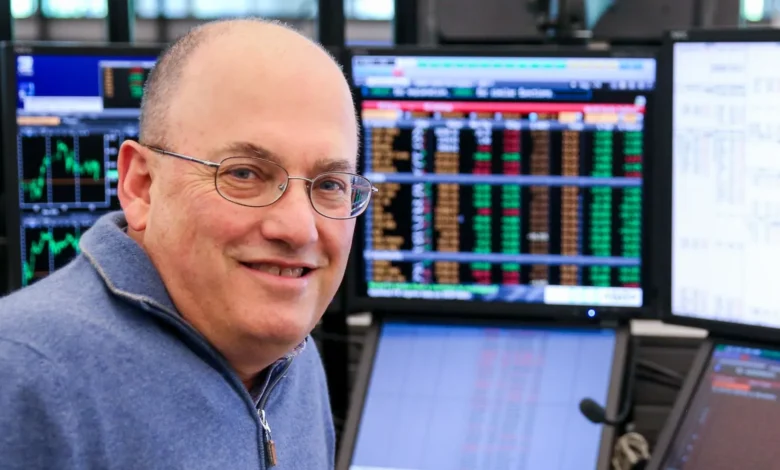Yan Trader Hedge Fund Cornell: A Comprehensive Insight

I. Introduction
A. Definition of Yan Trader Hedge Fund Cornell
Yan Trader Hedge Fund Cornell, The Yan Trader Hedge Fund is a prominent financial institution known for its innovative strategies and strong ties to Cornell University. It represents a blend of cutting-edge financial techniques and academic excellence, making it a notable name in the world of hedge funds.
B. Significance in the Financial Industry
Hedge funds play a critical role in today’s financial landscape, and Yan Trader Hedge Fund Cornell has set itself apart through its advanced investment methodologies, high returns, and robust risk management. Its association with Cornell further enhances its credibility and influence.
C. Purpose of the Content
This article provides an in-depth exploration of the Yan Trader Hedge Fund Cornell, delving into its origins, strategies, performance, and impact. Readers will gain a clear understanding of what makes this hedge fund unique and influential in the global financial arena.
II. Origins and Establishment
A. Founding of Yan Trader Hedge Fund
The Yan Trader Hedge Fund was established to bridge theoretical financial models with practical applications. Leveraging insights from academia and industry, the fund was designed to maximize returns while adhering to innovative and ethical investment practices.
B. Connection to Cornell University
The fund’s connection to Cornell University is a cornerstone of its identity. Many of its founders and key contributors are Cornell alumni or professors, bringing academic rigor and research-based strategies to the fund’s operations.
C. Key Figures Involved in Its Creation
Prominent individuals from both Wall Street and Cornell University collaborated to create the Yan Trader Hedge Fund. These visionaries combined expertise in quantitative finance, economics, and technology to build a forward-thinking financial institution.
III. Investment Strategy
A. Core Investment Philosophy
At its core, Yan Trader Hedge Fund emphasizes:
- Quantitative Analysis: Using data-driven models to identify opportunities.
- Diversification: Minimizing risk by spreading investments across multiple sectors and geographies.
- Sustainable Practices: Prioritizing long-term growth and ethical investments.
B. Types of Assets and Markets Targeted
The fund operates in various markets, including:
- Equities
- Commodities, such as corn and other agricultural products
- Fixed income securities
- Alternative investments, such as real estate and private equity.
C. Risk Management Approach
Risk management is a critical component of the fund’s strategy. Key practices include:
- Hedging Techniques: Using derivatives to mitigate losses.
- Stress Testing: Simulating market scenarios to prepare for volatility.
- Portfolio Rebalancing: Regularly adjusting investments to maintain optimal risk levels.
IV. Organizational Structure
A. Leadership and Management Team
The leadership team comprises experienced professionals with backgrounds in finance, technology, and academia. This diverse expertise enables the fund to stay ahead of industry trends.
B. Departments and Divisions
The hedge fund is organized into specialized divisions, including:
- Quantitative Research
- Portfolio Management
- Risk and Compliance
- Client Relations
C. Roles and Responsibilities Within the Fund
Each team member plays a vital role:
- Analysts: Conduct market research and data analysis.
- Traders: Execute investment strategies.
- Compliance Officers: Ensure adherence to regulations.
V. Performance and Track Record
A. Historical Returns
The fund has consistently outperformed benchmarks, delivering robust returns over the years. Its ability to adapt to market fluctuations has been a hallmark of its success.
B. Benchmark Comparisons
Compared to industry averages, Yan Trader Hedge Fund Cornell has consistently ranked in the top quartile for performance, especially in sectors like commodities and emerging markets.
C. Notable Successes and Challenges
- Successes: Strategic investments in agricultural commodities, such as corn futures, have yielded impressive profits.
- Challenges: Navigating market downturns, such as the 2008 financial crisis, tested the fund’s resilience but also highlighted its strong risk management.
VI. Technological Integration
A. Use of Advanced Trading Algorithms
The fund leverages AI-powered trading algorithms to identify market trends and execute trades with precision.
B. Data Analysis and Machine Learning Applications
- Big Data Analytics: To predict market movements.
- Machine Learning: To refine investment models based on historical performance.
C. Cybersecurity Measures
Given the sensitive nature of financial data, the fund employs robust cybersecurity protocols to safeguard assets and maintain client trust.
VII. Regulatory Compliance
A. Adherence to Financial Regulations
The fund strictly follows regulations set by authorities like the SEC (Securities and Exchange Commission) to ensure transparency and ethical practices.
B. Transparency and Reporting Practices
Regular updates and detailed reports are provided to investors, ensuring complete transparency in operations.
C. Ethical Considerations
The fund avoids investments in industries that conflict with its ethical guidelines, such as those harmful to the environment or society.
VIII. Client Base and Investor Relations
A. Types of Investors Served
The fund caters to a diverse clientele, including:
- High-net-worth individuals
- Institutional investors
- Endowments and trusts
B. Minimum Investment Requirements
Investors typically need a minimum investment of $1 million, reflecting the fund’s focus on sophisticated clients.
C. Communication and Reporting to Clients
Monthly newsletters, quarterly performance reports, and personalized updates keep investors informed about the fund’s activities and outlook.
IX. Industry Impact and Recognition
A. Influence on Hedge Fund Practices
The fund’s innovative strategies have inspired other hedge funds to adopt data-driven approaches and focus on sustainability.
B. Awards and Accolades
Yan Trader Hedge Fund Cornell has received numerous accolades, including:
- Best Hedge Fund for Commodities (2022)
- Excellence in Quantitative Finance (2021)
C. Contributions to Financial Research and Education
The fund collaborates with Cornell University to support financial research, sponsor scholarships, and host educational events for aspiring finance professionals.
X. Future Outlook
A. Growth Projections
With the increasing adoption of AI in finance and a growing interest in alternative investments, the fund is poised for significant growth in the coming years.
B. Emerging Trends and Adaptations
Key trends include:
- Expansion into green investments.
- Enhanced focus on ESG (Environmental, Social, Governance) metrics.
C. Potential Challenges and Opportunities
- Challenges: Regulatory changes and market volatility.
- Opportunities: Emerging markets and technological advancements.
XI. Conclusion
A. Recap of Key Aspects of Yan Trader Hedge Fund Cornell
The Yan Trader Hedge Fund Cornell is a leader in the hedge fund industry, blending innovative strategies, academic excellence, and cutting-edge technology to deliver exceptional results.
B. Importance in the Broader Context of Hedge Funds and Finance
Its emphasis on sustainability, transparency, and performance highlights its importance in shaping the future of hedge funds.
C. Encouragement for Further Exploration of the Topic
Whether you’re an investor, a finance enthusiast, or a student, exploring the practices and principles of Yan Trader Hedge Fund Cornell can offer valuable insights into the evolving world of finance.
FAQs
1. What is Yan Trader Hedge Fund Cornell?
It is a prominent hedge fund known for its innovative investment strategies and strong association with Cornell University.
2. What are its primary investment areas?
The fund invests in equities, commodities (including corn futures), fixed income securities, and alternative investments.
3. How does it integrate technology into its operations?
The fund uses AI algorithms, machine learning, and big data analytics to enhance trading efficiency and risk management.
4. Who can invest in Yan Trader Hedge Fund Cornell?
The fund primarily serves high-net-worth individuals and institutional investors, with a minimum investment requirement of $1 million.
5. What is its connection to Cornell University?
The fund collaborates with Cornell for research, talent recruitment, and academic initiatives, reflecting its roots in the university’s intellectual ecosystem.
6. What sets Yan Trader Hedge Fund Cornell apart from other funds?
Its unique blend of academic insights, technological innovation, and strong performance track record distinguishes it in the competitive hedge fund industry.
Mitsubishi 3.8 MIVEC EL TEKO: A Comprehensive Guide
Asthetic Houlubsi: A Deep Dive into Artistic Inspiration and Expression




